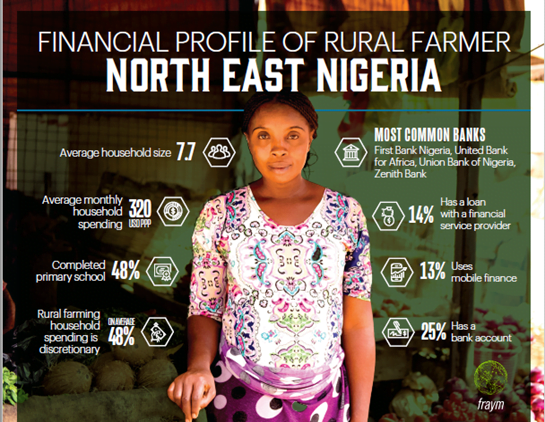
Focused on meeting the financial needs of the most vulnerable citizens in society, financial inclusion is recognised across the globe as a critical component to economic development and advancement. The main goal of financial inclusion is to improve the range, quality and availability of financial services and products to the unserved, under-served and financially excluded. World Bank Group President Jim Yong Kim adds, “Having access to financial services is a critical step towards reducing both poverty and inequality, and new data on mobile phone ownership and internet access show unprecedented opportunities to use technology to achieve universal financial inclusion.”
Many governments and banks, particularly in Africa, have established goals that aim to increase access to financial services. Nigeria, for example, has set a goal of further reducing the exclusion rate by 20% 2020. Additionally, recent developments in banking, such as mobile money, digital banking and agent banking, make greater inclusion possible. The question then is, how do financial institutions and consumer companies strategically expand into rural communities?
The role of digital technology in financial inclusion
According to the Global Findex Database 2017, there has been a significant increase in the use of mobile phones and the internet to conduct financial transactions. Yet, globally, 1.7 billion adults remain unbanked, with two-thirds of them owning a mobile phone that could help them access financial services.
The role of geospatial technology in financial inclusion
Recent technological advancements make it possible to get hyper-local insights for areas where data has been traditionally hard to obtain. Satellite imagery, household surveys, and cloud computing can be used to reveal population characteristics in countries, cities, and neighborhoods, even down to the 1km2 level. Instead of working with aggregated data and static imagery, it’s possible to illuminate specific areas of interest. Applications for this type of data are vast and cross sectors. To get a sense for its power, let’s apply it to the financial inclusion challenge.
Creating Consumer Profiles for Rural Africa
Due to the Nigerian government lending targets and incentive programmes, many banks are establishing business strategies that target specific groups, such as smallholder farmers. Built to make the retrieval of consumer data easy, the cutting-edge platform dataFraym helps identify and locate concentrations of these target customers in rural Nigeria. An enterprise platform containing this data allows banks to understand crop production and seasonal income patterns, analyse pre-existing financial services usage, and overlay marketplaces where farmers may congregate on specific days.
Almost 100 million Nigerians live in rural areas, with the vast majority living in households engaged in farming activity. Financial inclusion is a major barrier to prosperity for these rural farming household because formal bank branches are typically located in cities, and rural customers are often viewed as being less lucrative for financial products. However, Fraym’s data shows that rural farmers have the same level of demand for financial services as urban residents.
With limited access to a formal banking sector, rural farmers tend to rely on informal lending networks to meet their financial needs. In fact, 47% of rural farming households reported borrowing money from outside the household at least once in the past year and 57% reported saving in some form. These rates of borrowing and saving are similar amongst urban households. The key differences lie in the sources of credit and savings.
About 14% of rural farmer borrowing happens in the formal financial space, and surprisingly, this low level of formal borrowing is similar in urban settings. However, formal sector savings rates are much lower in rural areas. One third of rural farmers who save do so in a bank, compared to two thirds of urban households with savings. Instead of saving in banks, rural farmers tend to use informal networks. This is notably higher than urban residents, where less than half save in the form of cash at home.

The lack of banks in rural settings can also help explain the low use of formal financial products. 62% of farmers report living more than five kilometres away from a bank. This distance creates a barrier to formal financial use, with as little as 20% of farmers having a bank account, compared to 42% of urban residents. Majority of the farmers without bank accounts stated that they haven’t opened a bank account because there are no banks nearby.
From a financial inclusion perspective, there is clearly a large, underserved market for financial services among rural farmers in Nigeria. In addition to a demand for financial products for personal use, farmers also have financial needs for their farming enterprises. Nearly half of all rural farming households have invested in their own business, and one out of five has borrowed money in order to invest.
These kinds of invaluable insights, taken from custom analytics and hyperlocal mapping, answer important questions for financial service providers like ‘how do people in a specific area behave?’ and ‘what financial products/services are they lacking?’. By incorporating information about people’s needs and whereabouts into growth strategies and operational planning, financial institutions and consumer companies can expand their services to rural settings in a targeted way and pioneer the way towards more successful outcomes for African businesses and communities.
Fraym is a geospatial data company that delivers hyperlocal insights for 50+ African countries. Their platform helps fast-growing companies, development organisations, and government agencies answer high-priority questions about where to focus and how to reach specific populations. The company’s leadership has focused on the African continent for decades, holding senior positions in The White House, the African Development Bank, the Center for Global Development, and the ONE Campaign. From offices in Lagos, Nigeria, Nairobi, Kenya, and Washington, D.C., Fraym is committed to empowering African businesses and communities through precise, localised data.



